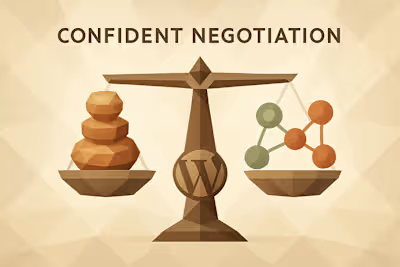From Code to Content: How WordPress Freelancers Can Attract Premium Clients with Authority Blogging

From Code to Content: How WordPress Freelancers Can Attract Premium Clients with Authority Blogging
Why 'Just Blogging' Isn't Enough: The Authority Blogging Mindset
Finding Your Niche and Identifying Client Pain Points
Beyond 'WordPress Developer': Specializing in an Industry or Technology
How to Research What Your Ideal Clients Are Searching For
The Four Types of Content That Attract Premium Clients
In-Depth Tutorials and How-To Guides
Case Studies: Proving Your Value with Real Results
Comparison Posts and Plugin Reviews
Thought Leadership and Opinion Pieces
Writing and Promoting Your Authority Content
SEO Best Practices for Blog Posts
Distributing Your Content Where Your Clients Are
Conclusion
References
From Code to Content: How WordPress Freelancers Can Attract Premium Clients with Authority Blogging
Why 'Just Blogging' Isn't Enough: The Authority Blogging Mindset
Finding Your Niche and Identifying Client Pain Points
Beyond 'WordPress Developer': Specializing in an Industry or Technology
How to Research What Your Ideal Clients Are Searching For
The Four Types of Content That Attract Premium Clients
In-Depth Tutorials and How-To Guides
Case Studies: Proving Your Value with Real Results
Comparison Posts and Plugin Reviews
Thought Leadership and Opinion Pieces
Writing and Promoting Your Authority Content
SEO Best Practices for Blog Posts
Distributing Your Content Where Your Clients Are
Conclusion
References
Posted Jul 6, 2025
Stop chasing low-paying gigs. Learn how to use strategic blogging to build authority, attract your ideal clients, and command higher rates as a freelance WordPress developer.







![How to Rank #1 for "WordPress Developer in [Your City]": A Local SEO Guide](https://media.contra.com/image/upload/w_400,q_auto:good,c_fill/gpcdduboqfzsbxg7hnxz.avif)

